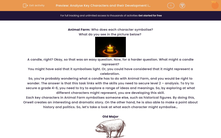Animal Farm: Who does each character symbolise?
What do you see in the picture below?

A candle, right? Okay, so that was an easy question. Now, for a harder question.
What might a candle represent?
You might have said that it symbolises light. Or, you could have considered that it might represent a celebration.
So, you’re probably wondering what a candle has to do with 'Animal Farm', and you would be right to wonder. The answer is that this task links with the skills you need to secure level 2 – analysis. To try to secure a grade 4-6, you need to try to explore a range of ideas and meanings. So, by exploring what different characters might represent, you are developing this skill.
Each key character in 'Animal Farm' symbolises someone else, such as historical figures. By doing this, Orwell creates an interesting and dramatic story. On the other hand, he is also able to make a point about history and politics. So, let’s take a look at what each character might symbolise…
Old Major
.jpg)
We are introduced to Old Major at the start of the story as he is described as ‘highly regarded’ and ‘majestic’. It is clear that he is highly respected by the other animals on the farm. Because of his age, Old Major is able to recount his life on the farm in a wistful way. He highlights the terrible conditions of living under Mr Jones and coins the phrase ‘Animalism’. He encourages the animals to rebel.
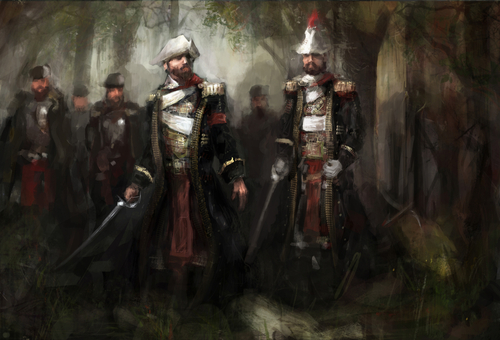
Old Major is said to represent Karl Marx, co-author of 'The Communist Manifesto', and Vladimir Lenin, who led the 1917 Russian revolt. Both Marx and Lenin were passionate about the class struggle and felt that things would only change if the poor revolted.
Exam focus: It is worth considering why Orwell presents Old Major in such a respectful light. Could it be because he agrees with Old Major’s ideas? And indeed, the ideas of Marx and Lenin?
Snowball
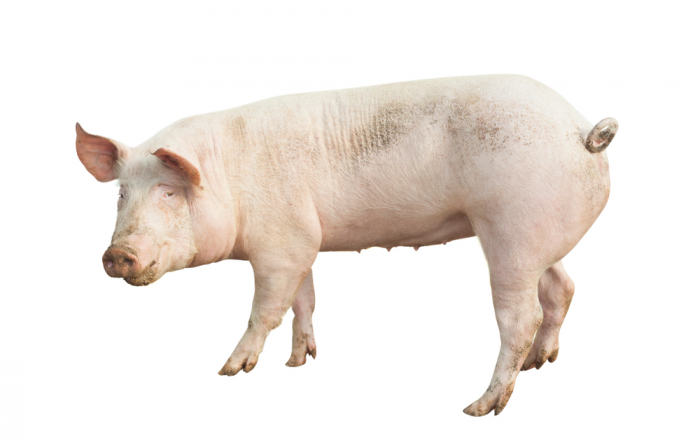
Snowball is another of the pigs on the farm. When Old Major dies, he appears as the most natural leader. He is concerned with creating a better life for all of the animals and wants decisions to be made democratically. Snowball is the opposite of Napoleon and we see them clash in the novella. Despite his intelligence, Snowball appears to be unaware of Napoleon’s plans to expel him. After he leaves Animal Farm, Snowball is blamed for anything that goes wrong or any misfortune.
Snowball symbolises Leon Trotsky. Trotsky led the Red Army to victory in the Russian Civil war, in a similar way to Snowball and the Battle of Cowshed. However, just like Napoleon does to Snowball, Trotsky was expelled after disagreeing with Stalin, the leader of Russia at the time.
Exam focus: Snowball is an interesting choice of name. You may want to consider what white might represent? Or, how long a snowball can survive. How might this link to Orwell's message about leaders and Trotsky.
Napoleon
%20is%20a%20critically%20endangered%20species%20in%20the%20pig%20genus.jpg)
Napoleon is the opposite of Snowball. After the death of Old Major, Napoleon becomes more controlling. He controls the food supply, takes the puppies for his own and he expels Snowball. Napoleon says that he is a supporter of socialism and Old Major’s seven commandments, but we see the opposite as the story develops. He becomes more like Mr Jones as the story continues. We see him take over the farmhouse, wear human clothes and, at the end, he is drinking alcohol with the other human farmers. As the story goes on, Napoleon becomes fatter. This shows how greedy he is and also highlights that he is a poor leader as the animals are poorer than ever. He does not share his wealth.
Napoleon leads through fear. He uses the puppies that he trains to scare others. He also uses Squealer to persuade the other animals that he is making changes for their benefit. We see him begin to change into a dictator as he changes the seven commandments and reverses the chant “four legs good, two legs bad". By the end of the story, Napoleon is as scary as Mr Jones.
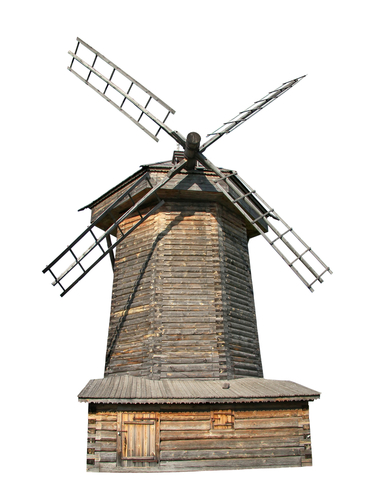
Napoleon represents the Russian leader, Joseph Stalin. Stalin created his own form of Communism, known as Stalinism. We can see similarities between Napoleon and Stalin in the story. The windmill is a symbol for Stalin’s five year plans that saw the workers working harder than ever. The dogs could represent Stalin’s bodyguards. Lastly, the executions of the animals spying linked to Stalin’s show trials in Russia.
Exam focus: Consider why Napoleon is presented as such a horrible character. What might Orwell want us to think of Napoleon and Stalin as leaders? Orwell could be warning us of the dangers of trusting one leader.
Squealer

Squealer, as his name suggests, tells tales and acts as a spy. He uses propaganda to make the animals doubt themselves and believe in Napoleon. Squealer is very clever in his speech - he uses statistics and jargon to confuse the animals so that they don’t question their poor conditions.
Squealer acts as a friend to the animals but he is also threatening. Consider the way that he uses Napoleon’s dogs so that the animals agree with what he says. He also changes the wording of the seven commandments until all of the animals’ rights have gone: “All animals are equal, except some are more equal than others.’ Squealer represents propaganda and how it was used to control the workers in Russia. Orwell might be sending the reader a warning about who and what they should trust.
Boxer
.jpg)
Boxer shows a physical strength and a strength of character in the story. He believes in the revolution and never asks questions. Instead he states “Napoleon is always right”. Boxer lacks intelligence and fails to learn the full alphabet. This, along with his belief in Napoleon, results in Boxer being exploited. Instead of retiring as he is led to believe, he is sold to the knacker’s yard and to his death. Boxer represents the workers of Russia, also known as the proletariat, who worked tirelessly as part of Stalin’s five year plan.
Exam focus: It is worth commenting on Orwell’s message here about how the workers were exploited. Through Orwell’s description, we view Boxer in a sympathetic light. Perhaps Orwell wants to show how Russia also mistreated their loyal workers.
Mr Jones
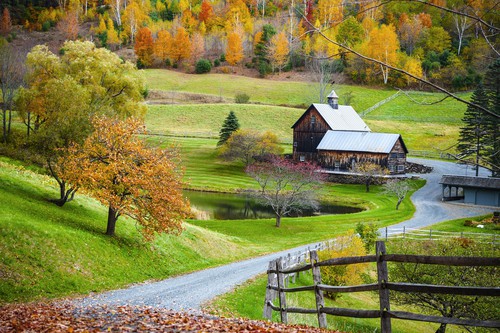
At the start of the novella, Mr Jones is in charge of Manor Farm. He is often described as “drunk” and neglects the animals by not feeding them. He lacks the ability to lead and at the Battle of Cowshed, he ‘was hurled into a pile of dung’.This humorous image shows Mr Jones’ lack of control.
Exam focus: Mr Jones represents the Tsar’s downfall during the 1917 revolution as they were both viewed as weak leaders. Orwell might be showing that leaders show a lack of understanding of the lower classes. It could also be a warning of what could happen if the masses are not happy with their treatment.
Example answer
You have now revised the key characters in 'Animal Farm'. Using these sentence stems will help you secure a good grade as they encourage you to focus on symbolism to analyse:
- Orwell uses the character to symbolise…
- The character represents the historical figure…
-This might/could suggest…
- Perhaps Orwell’s message is…
Super focus! You’ve read through all of the information about the novella’s key characters. Hopefully, you are now aware of what happens to the characters in the story, but more importantly, how they might symbolise something greater. This will help you to secure a good grade in your examination.
You should always refer to your own text when working through these examples. These quotations are for reference only.

